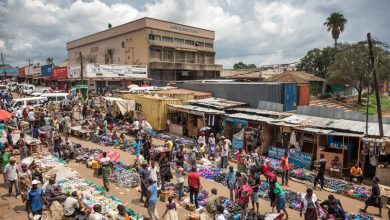The billion kwacha Kabaza business
Forget the negativity surrounding motorcycle taxis or Kabaza; this is a sector Malawi must be proud of. It is a whole economy that must be cherished and protected.
With a persistently widening national budget deficit coupled with a scary debt burden, government has every reason to support any sector with the potential to stimulate growth and help rescue the struggling economy.

It, therefore, makes a lot of economic sense for government to grant amnesty to Kabaza owners to clear their unregistered motorcycles with the Malawi Revenue Authority (MRA) at a reduced fee.
Minister of Finance and Economic Affairs Simplex Chithyola announced the amnesty during presentation of the mid-term budget review statement in December 2024 in response to a proposal from the Malawi Coalition of Kabaza Stakeholders and Associations (Macokasa).
The amnesty, which runs from March 10 to June 30, is to lure Kabaza owners to clear their motorcycles, even those smuggled into the country.
According to information published on the Malawi Revenue Authority (MRA) website, the revised import duty for motorcycles has been pegged at K56 000 for models with engine capacities ranging from 0 to 50cc and those between 51 and 100cc while the big engines from 101 to 250cc the rate is K77 000.
Records from the Directorate of Road Traffic and Safety Services (DRTSS) as presented to Parliament in December 2023 showed that only 115 400 motorcycles were registered in their Maltis system.
While the department has not shared with us the latest figures, after an inquiry, we understand the number remain below 200 000.
Macokasa claims to have a membership of 2.2 million most of which are unregistered.
If just a million were registered at the reduced rate of K56 000 MRA would rake in at least K56 billion.
This figure alone can anchor a budget reserved for revamping the operations of Admarc or support the purchase of maize in the current fiscal year. Government has allocated K60 billion towards maize purchases and K53 billion to Admarc.
The figure can also support tourism promotion and development and boost mining both of which are part of what government calls the ATMM (Agriculture, Tourism, Mining and Manufacturing) strategy meant to spur economic growth.
“Madam Speaker, in the 2025/26 financial year, a total of K14.2 billion has been allocated under this sector from K5.5 billion that was allocated in the 2024/25 financial year, representing a 160 percent increase.
“Specifically, Madam Speaker, K5.1 billion has been earmarked for Mining Regulatory Authority; K4 billion for the establishment of the Mining Company; K4.1 billion for Mining and Geological Services; and K1 billion for the Mineral Laboratory”.
Again, if two million motorcycles were to be registered during the amnesty, Account Number One would be K102 billion richer, an amount above the K99.5 billion allocated to irrigation development.
The same is enough to settle foreign debt interest, estimated at K61.2 billion, for two financial years.
This is a benefit on one side. Ideally after clearing with MRA, the motorcycles are expected to register with DRTSS which brings in more money into Account Number One.
Then there are sectors that also benefit from the same such as oil companies and those who sell spare parts. From random interviews with Kabaza operators in Lilongwe, Salima and Mangochi, we gathered that, on average, most of them use three litres of fuel on a day.
For a million motorbikes, in a day, the cost of fuel is around K2.5 billion or K75 billion in a month.
A helmet costs between K25 000 to K30 000 and government is pushing each motorcycle to have two which may cost between K50 000 to K60 000. If just 100 operators acquired two helmets each at K25 000 suppliers would earn K5 billion.
These motorcycles are also used to transport agricultural produce to the market or indeed transport business people or the working class. All this is money in circulation.
Being an affordable and accessible mode of transport it means a large part of the population depends on Kabaza for survival.
This is how crucial the sector is hence the need for government to provide a conducive environment for kabaza’s operations including strict law enforcement for improved safety of users.





